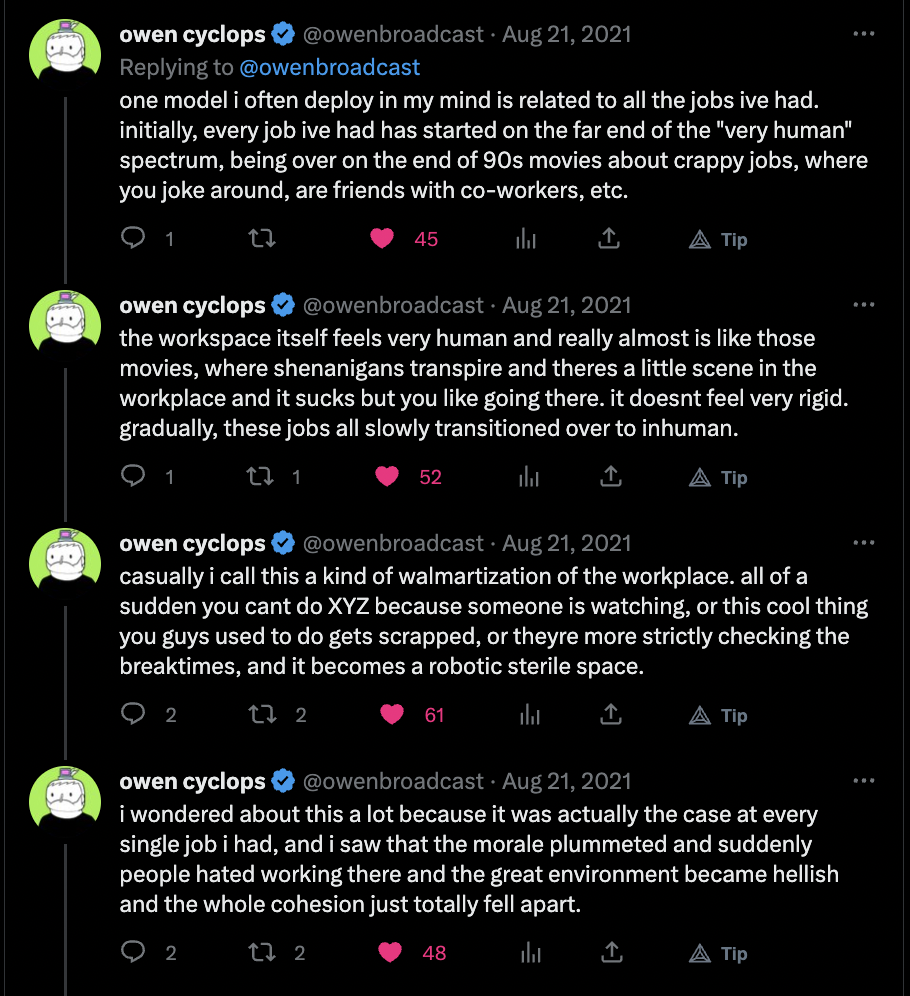i’ve been thinking a lot about sadhguru’s idea of each nation and culture having a unique rhythm, or tara, and once you are aligned with that tara, you will ride its tune, or raga.
www.barnesandnoble.com/w/bha-ra-…
in traveling i can better feel the distinct rhythms of America.
in the movies of the 50s, like It’s a Wonderful Life, you can sense a certain bubbliness, and a simple, optimistic enthusiasm. you can sense the rhythm of the go-getter, who must do, and do more, rather than reflect pensively over a cigarette in a dark room. we have them in 50s detective noir, but i’d bet money that aesthetic is imported from europe.
i wonder if the land can set rhythm. i would trust the indigenous to uncover this natural rhythm. the yang, will driven, europeans– they settle, and perhaps there is some reconciliation between how they are and how the land is.
to assimilate well into a culture, your constitution must be able to conform to its rhythm. an iowan farmer, unless brimming with Zarathustran self-assertion, will feel friction in Manhattan.
the alternative is a multiplexed reality, different rhythms laid on top of each other, harmonized, cultural cohesion determined by how well they can harmonize, and the iowan farmer, in his own reality tunnel, naturally recognizes what slow parts of manhattan exist, and they form a kind of bass-line for the neurotic NYU art students.
i would guess a lot of language learning is first adapting to the rhythm of the language. the melody, or words, come after.
classically educated music critiques complain modern music no longer continues the western canon. it is unlinked from tradition. everyone sings their own disparate songs and spawn unique tracks and voicings. so our national rhythm divides further and further. the liberal will say it will all harmonize into a richer and complex composition. the conservative will say it’s unlistenable chaos.
the EDM festival “fits” socal well. it’s like a reinterpretation of the sun and beach and desert. i wonder what will come out of it.
